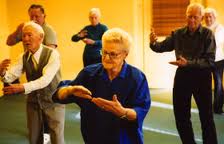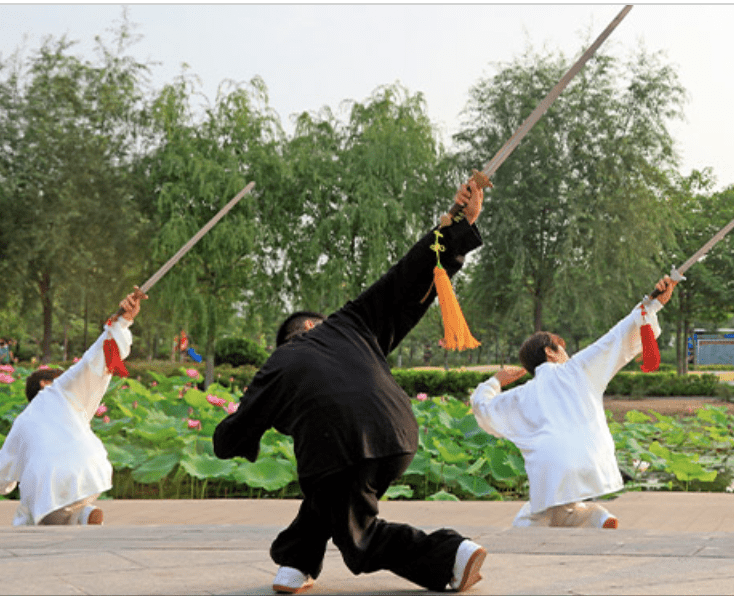Improved Memory With Tai Chi For Alzheimer’s
Health benefits gained from the practice of the centuries-old Chinese martial art of Tai Chi have been known for some time, yet recent research suggests that the positive effects offered by these exercises extends further than was originally believed. Not only can Tai Chi reduce excess weight, improve balance, coordination, and agility, strengthen the muscles, and create a more positive mental and emotional state, it may also boost the memory and help fight Alzheimer’s.

British scientists conducted an eight month study, ending in 2012, which revealed a startling degree of effectiveness in Tai Chi at fighting both memory loss and, quite likely, Alzheimer’s. Aerobic exercise increases brain volume, but now it has been proven with a rigorous test that Tai Chi does the same.
Those participants who did not use Tai Chi for Alzheimer’s witnessed brain shrinkage over the eight months of the study, while those who practiced the martial art showed increases in the size of their brain comparable to other activities that stimulate cerebration. The scientists believe that this helps to improve memory (a logical conclusion, since more storage space allows more memory storage and processing), and possibly fights Alzheimer’s also. Areas of the brain prone to it might grow thus bypassing Alzheimer’s damage and enabling the continuation of normal function.
Why Tai Chi for Alzheimer’s equals or exceeds other preventatives
The amount of brain growth provided by Tai Chi for Alzheimer’s, and the stimulation of blood flow and cerebral activity that it created, was about equal to that provided by lively conversation, mentally engaging hobbies, and similar activities that prompt vigorous action in the brain. This might make it appear at first that any of these would be a perfectly acceptable substitute for Tai Chi, but this is not actually the case, since there is another factor in play.
Tai Chi provides a long list of benefits, both physical and mental, beyond the stimulation of brain activity and growth. Therefore, even if its effects are no greater in this one regard than, say, regular intellectual conversations, there are many extra bonuses that it provides.
Tai Chi helps tone the body, reducing fat and increasing muscle, as well as improving circulation – and does so in a gentle, low impact manner that carries only a miniscule risk of harm even in relatively frail individuals. The meditative, contemplative aspects of Tai Chi improve the mental and emotional state of practitioners, giving them a refreshed mind and more positive mood. Blood pressure is lowered by Tai Chi, thus addressing another common problem among the elderly, while arthritis symptoms are greatly alleviated and physical flexibility is enhanced, in some cases restoring function to joints that no longer worked properly due to past injuries.
Free Tai Chi Video: Tai Chi Sword Form
And, finally, Tai Chi greatly assists in developing balance – a vital attribute for seniors, who can better protect themselves from falls and stave off Alzheimer’s simultaneously by practicing this martial art. This exercise – physical, mental, emotional, spiritual – offers a lot to people of every age, but is particularly good for helping seniors stay sharper, more active, and in a more positive frame of mind.

